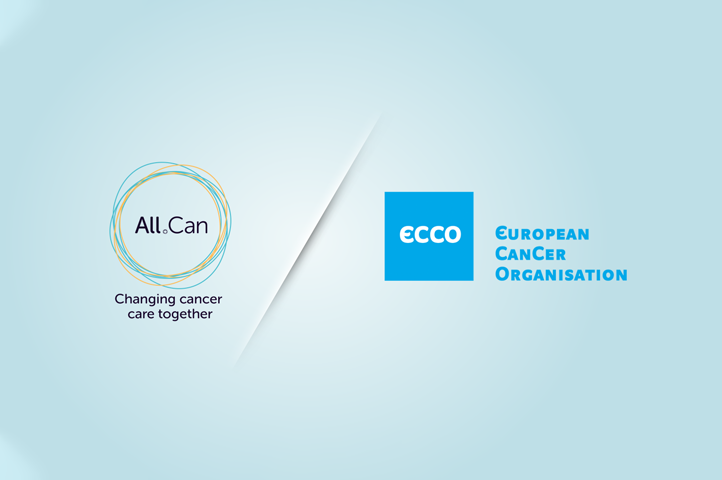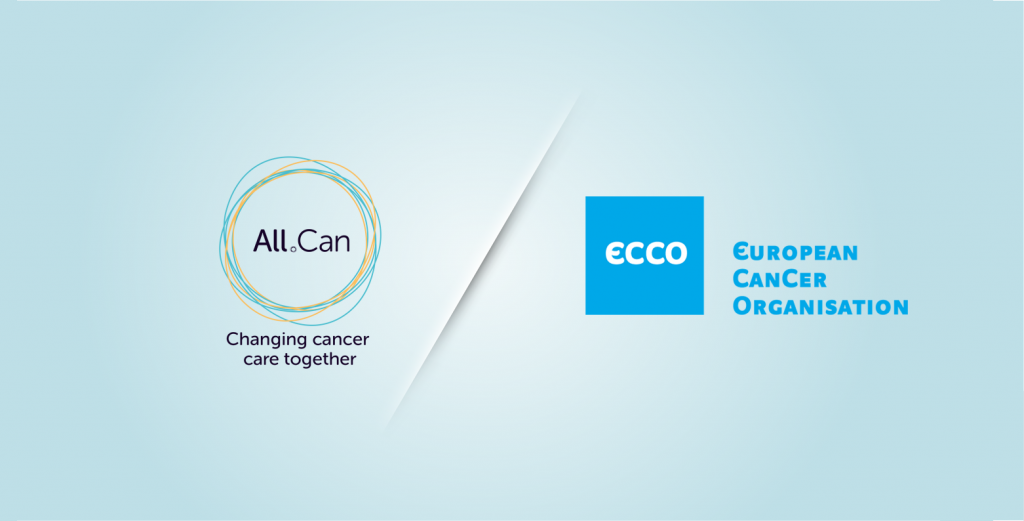

At the European Health Forum Gastein, we are delighted to announce that ECCO – the European CanCer Organisation – has become an official member of the All.Can initiative.
All.Can and ECCO share the same core purpose of working across sectors to achieve the goal of long-term sustainable cancer care.
ECCO and All.Can recently released publications that deal with finding innovative solutions to systemic problems of fostering innovation whilst tackling waste and inefficiency in cancer care. ECCO’s position paper on access to innovation, recently published in the European Journal of Cancer, outlines how we need to discontinue practices or interventions that are inefficient, and prioritise innovations that promise to deliver the best possible outcomes for patients.
As Peter Naredi, President of ECCO and Professor of Surgery and Chairman of the Department of Surgery, University of Gothenburg, Sweden says: “When you can’t increase the budgets, you have to make decisions about what to restrict. There are many avoidable procedures we could take out of our diagnostic and treatment schedules, but currently we don’t do that.”
All.Can’s 2017 Policy Report, recently published in the Journal of Cancer Policy, again calls for directing resources towards meaningful patient outcomes above all other considerations.
Dr Matti Aapro, Genolier Cancer Center Programme Director, Genolier, Switzerland and Board member of both ECCO and All.Can, explains “We have to put patients’ needs as a first priority, because that is what it’s really all about. What are we doing as physicians? As care givers? We are taking care of patients.”
ECCO and All.Can strongly believe that decisions on innovations should consider long-term impact, not just immediate costs.
To put words into action, All.Can is developing the first-ever patient survey focusing on waste and inefficiency in cancer care, which intends to produce compelling quantitative and qualitative data on how best to develop sustainable cancer care from the patient perspective. Both the OECD1 and the WHO has estimated that up to 20% of healthcare is wasted on ineffective care2 – and this survey will help shed light on where inefficiencies can be reduced in cancer, so that resources are freed to focus on interventions that make the most difference to patients.
The patient survey will be mirrored by a survey of health care professionals – working in collaboration with ECCO’s 25 member societies representing all specialties in cancer care.
A literature review compiled for the survey already highlights where cancer patients feel there are obvious drivers of waste and inefficiency in their care, including: poor information, leading to inappropriate care; symptoms not flagged in time, leading to late-stage presentation and poorer outcomes; administrative inefficiencies, such as lost or mislaid referrals, duplication of tests and wasted medicines; and poor co-ordination between different parts of the healthcare system.
Potential solutions to address some of these issues will be discussed during All.Can’s EHFG session ‘Making cancer care more efficient – what role can different stakeholders play?’ from 14.45 – 17.15 on 4 October in Forum 2. ECCO’s CEO Birgit Beger will be a keynote speaker.
Dr Matti Aapro believes “It’s very important to work together when we are dealing with an area like cancer. There’s no single speciality that can do everything.”
The ECCO/All.Can collaboration represents a unique opportunity to gather all stakeholders, within and beyond the health sector, to align on what matters most to patients, and use these data to drive meaningful changes in the way cancer care is planned and delivered.
1.Organisation for Economic Cooperation and Development. Tackling Wasteful Spending on Health. Paris, 2017.
2.World Health Organization. Health systems financing: the path to universal coverage. The World Health Report, 2010